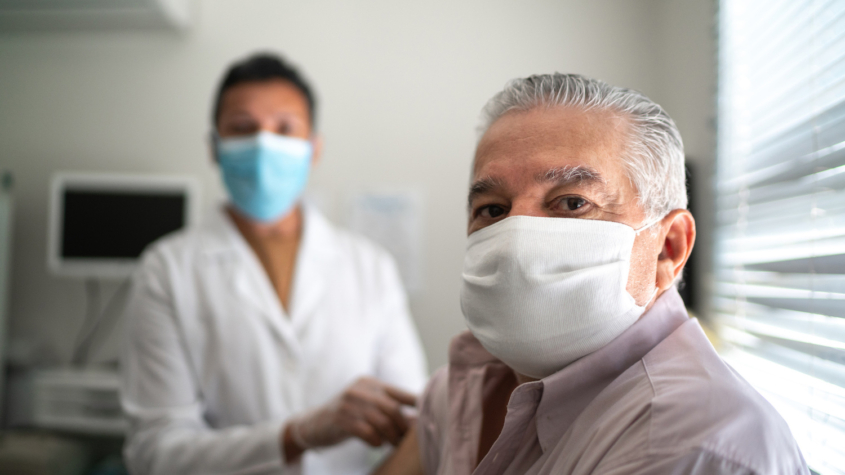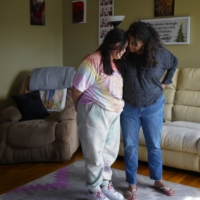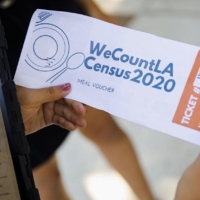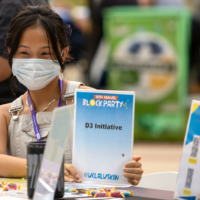Shah Co-Authors Report on Disproportionate COVID-19 Risk Among Latinos Local context is a key factor in the level of risk, the study of Medicaid patients in Contra Costa County finds
By Stan Paul
UCLA Luskin Professor of Public Policy Manisha Shah co-authored a study, published in the American Journal of Preventive Medicine, that showed Latinos had much higher odds of testing positive for COVID-19 than whites.
The USC-UCLA study, conducted in a Northern California regional medical center with a diverse group of adults enrolled in a county Medicaid managed care plan, also indicated a marked racial disparity in odds of hospitalization and death from COVID-19. Researchers noted that, while the coronavirus has disproportionately affected racial and ethnic minorities nationwide, in their California study, infection, hospitalization and death were higher for Latinos, but not Black patients, relative to white patients.
The researchers point out that socioeconomic differences may confound racial and ethnic differences in testing and that “the role of sociodemographic, clinical and neighborhood factors in accounting for racial/ethnic differences in COVID-19 outcomes remains unclear.”
The study included data from more than 84,000 adult Medicaid patients at Contra Costa Regional Medical Center. The researchers hypothesized that, because all of the patients had Medicaid, “racial/ethnic disparities in testing and outcomes would narrow when controlling for demographics, comorbidities and ZIP code-level characteristics.”
They also expected that these characteristics would be reduced relative to previous studies, given similar insurance coverage, household income and access to health-care providers. Among their conclusions, the researchers highlighted that racial and ethnic disparities depend on local context, citing studies from other states with differing results.
“The substantially higher risk facing Latinos should be a key consideration in California’s strategies to mitigate disease transmission and harm,” they recommend.
“We learned a lot about testing and hospitalization disparities through this study,” Shah said. “We recently implemented a randomized controlled trial with our Contra Costa County partners to better understand vaccine take-up among the vaccine hesitant.”
Shah said that the research team is testing the role of financial incentives, reducing appointment scheduling frictions, and provider messages on COVID-19 vaccine take-up in this diverse Medicaid managed care population.
“We are excited to share the results from this vaccine take-up study very soon,” Shah said.
Additional authors include Mireille Jacobson, associate professor at the USC Leonard Davis School of Gerontology and senior fellow at the USC Schaeffer School for Health Policy and Economics; Tom Chang, associate professor of finance and business economics at the USC Marshall School of Business; Samir Shah, CEO of Contra Costa Regional Medical Center; and Rajiv Pramanik at Contra Costa Regional Medical Center & Health Centers, Contra Costa Health Service.










Leave a Reply
Want to join the discussion?Feel free to contribute!